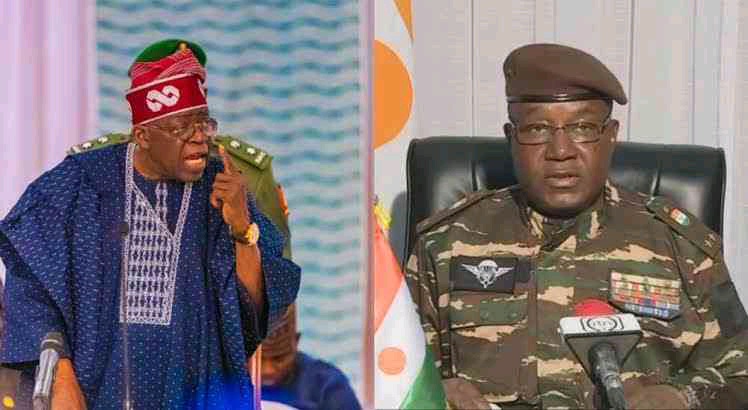By: Chioma Madonna Ndukwu
General Abdourahamane Tiani, the President of Niger Republic’s military government, has once again accused France of conspiring with Nigerian authorities to set up terrorist operational centers in the region. He alleges that France is funding Nigeria’s military efforts, notably the creation of a base in Borno State under the pretext of fighting terrorism, but with the hidden aim of destabilizing Niger and its neighbors.
Tiani claims that Niger’s intelligence gathered from captured terrorists revealed plans for a terrorist base in Sokoto’s Gaba forest, allegedly supported by France. He further stated that Nigeria’s government is complicit, with claims of involvement from figures like Ahmed Rufai Abubakar, Nigeria’s former intelligence head, whom Tiani accuses of being linked to terrorist networks.
Tiani’s accusations also extend to France’s provision of weapons to Boko Haram terrorists, which he alleges were used to target Chadian military jets. “France gave weapons to Boko Haram terrorists, so that if a Chadian military jet came to strike them, the terrorists could bring it down,” Tiani stated.
In his view, the Nigerian government’s reluctance to act on the intelligence, despite assurances of investigation, signals a troubling alliance between Nigeria and foreign powers like France, against the interests of Niger and regional stability. Tiani insists that the situation has reached a point where Niger must take independent action to safeguard its interests.
Tiani’s allegations are deeply concerning, as they suggest a complex web of international alliances and covert operations in the Sahel. If true, the implications for regional security and relations between African nations would be severe. While the accusations require thorough investigation and verification, the claims highlight the precariousness of the security situation in West Africa, where multiple foreign powers appear to have competing interests. It is crucial for all involved nations to prioritize transparency and collaboration in addressing the root causes of instability, rather than engaging in proxy wars that could further fuel regional terrorism.


